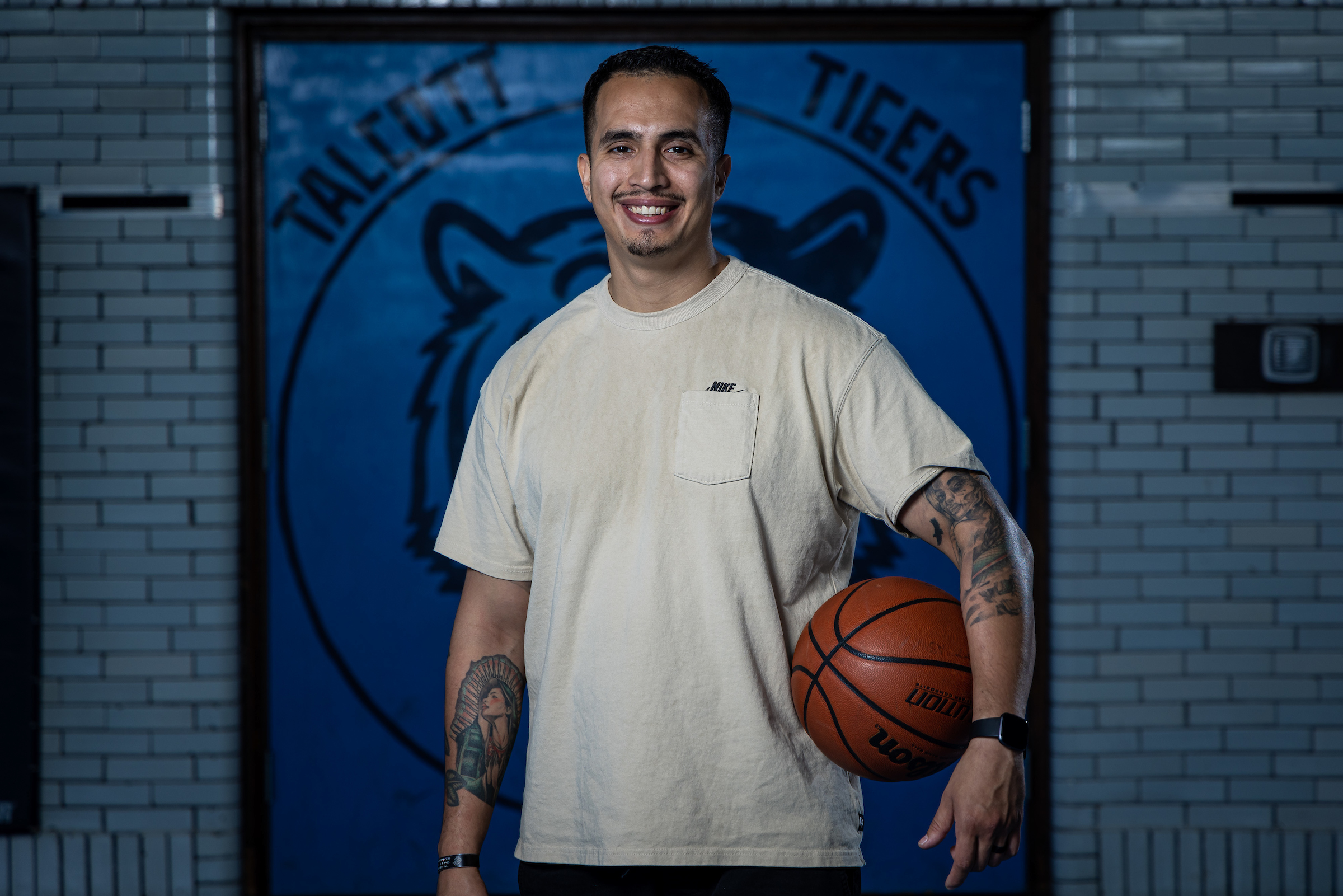 Julio Cortes will give the student commencement address Saturday, June 10 at DePaul University's College of Education and College of Communication dual commencement ceremony. He graduated from DePaul in November with a degree in physical education and a minor in screenwriting. (DePaul University/Jeff Carrion)
Julio Cortes will give the student commencement address Saturday, June 10 at DePaul University's College of Education and College of Communication dual commencement ceremony. He graduated from DePaul in November with a degree in physical education and a minor in screenwriting. (DePaul University/Jeff Carrion)Growing up in the Little Village neighborhood of Chicago, exercise was an outlet for Julio Cortes. As a child, he played baseball, ran his first 5K in seventh grade and even picked up boxing. While preparing to join the Marines after high school, he would run through his neighborhood, past the Cook County Jail and wonder if he would end up being a product of his environment or if he could find a different path.
On Saturday, June 10, Cortes will give the student commencement address while his wife and three-year old son cheer him on. Cortes, 31, has earned a bachelor's degree in physical education and a minor in screenwriting, melding his love of sports with a desire to make meaning out of his experiences.
“I look at different sports as metaphors for my life,” Cortes says. “With jiu-jitsu and boxing, you have to look for little opportunities that present themselves and capitalize on them. Just like in life. So that’s helped me make sense of my own life where little moments have led me to where I am today.”
After finishing his DePaul coursework in November, Cortes was offered a job at Talcott Fine Arts & Museum Academy, a Chicago Public School in the city’s West Town neighborhood, where he teaches physical education to Pre-K-eighth grade students. During his first six months at Talcott, Cortes started an afterschool boxing club and an at-home program for older students to introduce them to different types of workouts. This summer, he plans to begin a screenwriting program at the school.
Cortes also works with children with disabilities, preparing adaptive PE programs for them to participate in. An adaptive PE class he took with College of Education instructor Megan Krone helped lay the groundwork for his own classes.
“These adaptive PE classes are one of the highlights of my time at Talcott so far,” Cortes says. “I learned in my College of Education classes that play is a primary form of communication for a child, so I want to do everything I can to make sure that all children have a way to express themselves through play and sports.”
A Marines vet heads to DePaul
After serving about six years in the Marines, with deployments to Spain, Israel, Germany, Japan and Thailand and stints as a martial arts and marksmanship instructor for his fellow Marines, Cortes returned to Chicago looking for his next career move. While working with the YMCA of Chicago’s
Urban Warriors, an organization that pairs veterans with Chicago youth exposed to violence, Cortes had a chance meeting with DePaul alumni and enrolled at the university. After trying out a few different majors, he settled on physical education with a minor in screenwriting.
“Julio has an immense desire to give back to communities in need, not just through student advocacy and helping youth negotiate the schooling space, but also through assisting them in navigating the perils and pitfalls of their own communities,” says Horace Hall, a professor in the College of Education who taught Cortes in two courses. “His interests deeply reflect DePaul's Vincentian mission of community engagement and systemic change.”
For Kristen Neisler, a clinical assistant faculty member in the College of Education, Cortes’ life experience made him an asset in the classroom.
“He fit in well, made good relationships with his peers and was a joy to have in class,” Neisler says. “In addition, his passion for the content was magnified by his interest in boxing and weightlifting, and his background contributed to his ability and interest in the field of exercise science. I’m excited to follow along as his career develops.”
In a writing, rhetoric and discourse class with faculty member Eric Plattner, Cortes wrote a story called “Hood Hieroglyphics” about his experience growing up in Little Village. The story explores what outsiders might see as simple graffiti but are instead gang signs on walls, doors or bus stops — which Cortes says are “invisible borders” that indicate where it’s safe to go. “Just being a young Hispanic male with a fade haircut could make you be looked at differently by folks in the neighborhood or by cops,” Cortes says. Encouragement from Plattner pushed Cortes to explore writing, which eventually led him to the screenwriting minor.
While Cortes looks forward to celebrating with his family, he also hopes to be a model for others. “I consider myself just an average guy. But if someone else can look up on stage this weekend and see someone earning a degree who looks like them, talks like them, has served in the military, had a family and gives back to their community — I know firsthand the type of effect that can have on a young person.”
Russell Dorn is a manager of news and integrated content in University Communications.